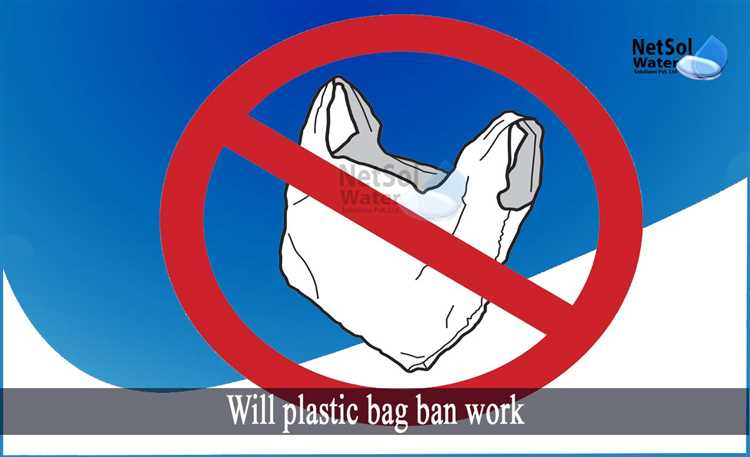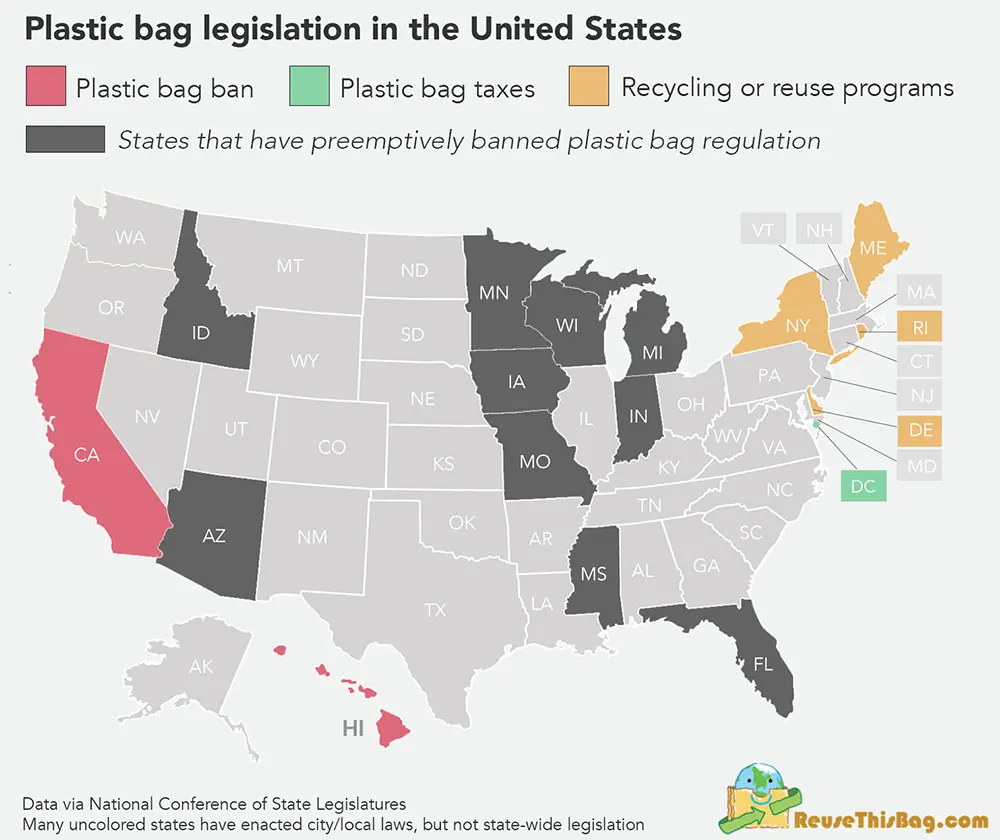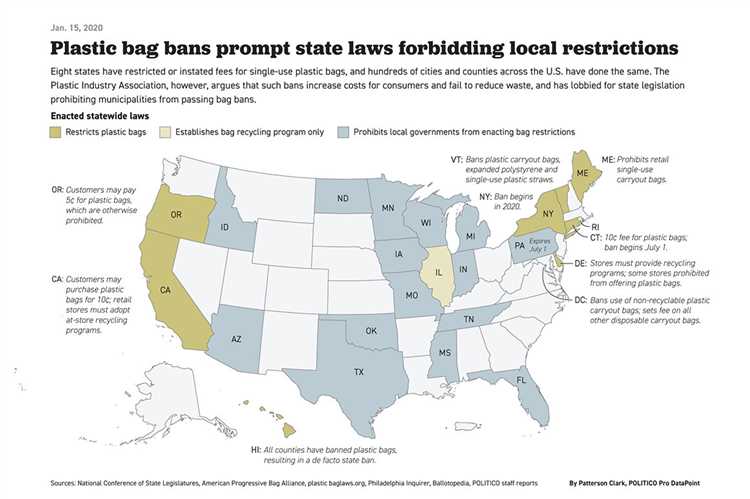
Plastic bag bans have become a popular topic of discussion in recent years, as more and more countries and cities around the world adopt measures to reduce plastic waste and promote environmental sustainability. These bans aim to curb the use of single-use plastic bags, which are known for their harmful impact on the environment.
Plastic bags, made from non-biodegradable materials such as polyethylene, can take hundreds of years to decompose. As a result, they contribute to the massive accumulation of plastic waste in landfills, oceans, and other natural habitats. This accumulation poses significant threats to wildlife, with many animals mistaking plastic bags for food or becoming entangled in them.
By implementing plastic bag bans, authorities hope to address these environmental concerns and promote the use of more sustainable alternatives, such as reusable bags or biodegradable options. Numerous studies have shown that plastic bag bans can lead to a significant reduction in plastic bag usage and waste. This reduction not only helps to protect the environment but also conserves valuable resources, such as oil, which is used in the production of plastic bags.
Furthermore, plastic bag bans often encourage individuals and businesses to adopt more eco-friendly practices and behaviors. People become more conscious of their plastic consumption and are more likely to bring their own reusable bags when they go shopping. Businesses may also introduce incentives, such as discounts for customers who bring their own bags, to further promote the use of sustainable alternatives and reduce plastic waste.
- Definition and Background
- Reasons for Plastic Bag Bans
- 1. Environmental Impact:
- 2. Marine Life Protection:
- 3. Resource Conservation:
- Environmental Impact of Plastic Bags
- Effectiveness of Plastic Bag Bans
- Reduction in Plastic Bag Usage
- Encouragement of Reusable Bags
- Question-Answer:
- What is a plastic bag ban?
- Why are plastic bag bans implemented?
- What is the impact of plastic bag bans?
- Has there been any research conducted on the effectiveness of plastic bag bans?
- Are there any challenges or criticisms associated with plastic bag bans?
Definition and Background
Plastic bag bans refer to policies and regulations put in place by governments, organizations, or communities to restrict or eliminate the use of single-use plastic bags. These bans aim to reduce the negative environmental impact caused by the production, consumption, and disposal of plastic bags.
Plastic bags are made from non-renewable resources such as petroleum or natural gas, and they have a significant carbon footprint. They take hundreds of years to decompose, pollute waterways, harm wildlife, and contribute to the overall plastic pollution problem.
The background of plastic bag bans can be traced back to the growing awareness of the environmental consequences of plastic waste. As plastic consumption and production increased in the mid-20th century, concerns about the impact on ecosystems, marine life, and human health rose. The adverse effects of plastic bags, coupled with the rise of sustainability movements and public awareness campaigns, led to the implementation of various policies around the world.
The bans on plastic bags can take different forms, including partial or total bans, fees or taxes on plastic bags, or requirements for retailers to provide alternative reusable bags. The effectiveness of these bans in reducing plastic bag usage and promoting the adoption of more sustainable alternatives has been a topic of debate and research for years.
Reasons for Plastic Bag Bans
Plastic bag bans have become increasingly popular in recent years due to various reasons. Here are some of the main motivations behind implementing these bans:
1. Environmental Impact:

One of the key reasons for plastic bag bans is the negative impact they have on the environment. Plastic bags are non-biodegradable and can take hundreds of years to decompose. They often end up in landfills or as litter in streets, parks, and bodies of water, where they can harm wildlife and contribute to pollution.
Plastic bags are also made from fossil fuels, which contribute to greenhouse gas emissions and climate change. By banning plastic bags and encouraging the use of more sustainable alternatives, such as reusable bags, governments and communities can reduce their environmental footprint.
2. Marine Life Protection:

Another significant reason for plastic bag bans is the protection of marine life. Plastic bags pose a significant threat to marine ecosystems as they can be mistaken for food by marine animals, leading to injury or death.
When plastic bags end up in the ocean, they break down into smaller pieces called microplastics, which can be ingested by marine organisms at the bottom of the food chain. These microplastics can then accumulate and concentrate as they move up the food chain, eventually reaching humans who consume seafood.
By banning plastic bags, governments and communities aim to reduce the amount of plastic waste entering marine environments and protect fragile marine ecosystems.
3. Resource Conservation:
Plastic bag bans also help in conserving valuable resources. The production of plastic bags requires significant amounts of energy, water, and raw materials. By reducing the demand for plastic bags, communities can save resources and reduce their reliance on non-renewable sources of energy.
Additionally, plastic bags are often single-use, meaning they are discarded after a single use. By promoting the use of reusable bags, plastic bag bans encourage consumers to choose more sustainable options and reduce the overall amount of waste generated.
| Reasons for Plastic Bag Bans |
|---|
| Environmental Impact |
| Marine Life Protection |
| Resource Conservation |
Environmental Impact of Plastic Bags
Plastic bags have become a significant environmental concern due to their negative impact on the planet. Here are some of the key environmental impacts associated with plastic bags:
- Excessive waste: Plastic bags are a major source of waste, contributing to overflowing landfills and littering landscapes. They take hundreds of years to decompose, which means they accumulate in the environment for a long time.
- Marine pollution: When plastic bags end up in water bodies, such as rivers, lakes, and oceans, they pose a serious threat to marine life. Marine animals can mistake them for food and ingest them, leading to injury, suffocation, or death. Additionally, plastic bags can entangle marine organisms, causing entrapment and harm.
- Resource depletion: Plastic bags are made from petroleum, a non-renewable resource. The production of plastic bags contributes to the depletion of fossil fuel reserves, which are crucial for various other essential purposes.
- Energy consumption: The production process of plastic bags requires significant amounts of energy, contributing to carbon dioxide emissions and climate change. The transportation and disposal of plastic bags also result in additional energy consumption and greenhouse gas emissions.
- Microplastic pollution: Over time, plastic bags degrade into smaller and smaller pieces, eventually breaking down into microplastics. These tiny particles can make their way into the food chain through water sources, impacting the entire ecosystem and potentially harming human health.
- Visual pollution: Plastic bags littering the environment create an unsightly appearance, diminishing the aesthetic value of natural spaces and recreational areas.
Considering the significant environmental impact of plastic bags, implementing plastic bag bans and promoting alternative eco-friendly options can help mitigate these issues and move towards a more sustainable future.
Effectiveness of Plastic Bag Bans
Plastic bag bans have been implemented in numerous countries and cities around the world in an effort to reduce plastic waste and protect the environment. These bans are designed to limit the usage and distribution of single-use plastic bags, encouraging consumers to opt for reusable bags instead.
Reduction in Plastic Bag Usage
One of the key indicators of the effectiveness of plastic bag bans is a reduction in plastic bag usage. Studies have shown that after implementing these bans, the consumption of plastic bags significantly decreases. For example, in a study conducted in California, it was found that plastic bag usage dropped by approximately 85% after a statewide ban was implemented.
This reduction in plastic bag usage leads to a decrease in plastic waste being generated and ultimately ending up in landfills or oceans. Plastic bags are known to have a detrimental impact on the environment, as they take hundreds of years to decompose and can harm marine life if they end up in water bodies.
Encouragement of Reusable Bags
Another measure of the effectiveness of plastic bag bans is the adoption and usage of reusable bags. By banning single-use plastic bags, governments and organizations aim to promote the use of reusable bags, which are more durable and environmentally friendly.
Studies have shown that plastic bag bans have successfully increased the use of reusable bags among consumers. In a survey conducted in Ireland, it was found that 69% of respondents reported using reusable bags more frequently after the implementation of a plastic bag levy. This shift towards reusable bags helps reduce the demand for single-use plastic bags and encourages sustainable shopping practices.
| Positive Effects | Negative Effects |
|---|---|
| – Reduction in plastic waste | – Initial resistance from consumers |
| – Protection of wildlife | – Potential increase in paper bag usage |
| – Cost savings for businesses |
In conclusion, plastic bag bans have proven to be effective in reducing plastic bag usage, promoting the use of reusable bags, and minimizing the negative impacts of plastic waste on the environment. While there may be initial resistance from consumers and potential drawbacks such as increased paper bag usage, the overall benefits of plastic bag bans outweigh the challenges. It is crucial for governments and organizations to continue implementing and improving plastic bag bans to further protect the planet for future generations.
Question-Answer:
What is a plastic bag ban?
A plastic bag ban is a regulation or law that prohibits or restricts the use of single-use plastic bags in a certain area or jurisdiction.
Why are plastic bag bans implemented?
Plastic bag bans are implemented to reduce plastic waste, minimize pollution, protect the environment, and encourage the use of reusable bags.
What is the impact of plastic bag bans?
Plastic bag bans have been shown to reduce the consumption and production of single-use plastic bags, leading to a decrease in plastic waste in landfills and oceans. They also promote the use of reusable bags and alternative packaging options.
Has there been any research conducted on the effectiveness of plastic bag bans?
Yes, several studies have been conducted to evaluate the effectiveness of plastic bag bans. These studies have shown a decrease in plastic bag usage and waste in areas where bans have been implemented.
Are there any challenges or criticisms associated with plastic bag bans?
Yes, some common challenges and criticisms include potential job losses in the plastic bag manufacturing industry, inconvenience to consumers who rely on plastic bags for various purposes, and the potential increase in the use of alternative single-use bags or packaging materials that may have their own negative environmental impacts.